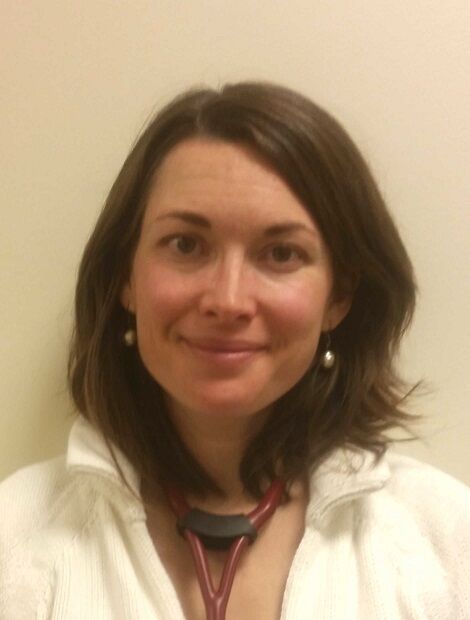Some information may be outdated.
When I was pregnant with my son, my mother began sending me books on vaccine safety—or rather her belief in the lack thereof and the importance of not following the Centers for Disease Control’s regular vaccine schedule.
I’ll be honest, her feelings freaked me out even though I’m a physician assistant with a master’s degree in public health. When I analyzed the resources my mother had shared with me, it was clear that the claims were based on anecdotes and poor data. None of the sources had evidence to support their claims of serious consequences.
Unfortunately, it shook the emotional side of my brain up. I skipped or delayed some recommended vaccines for my newborn son. At 6-months-old, my son developed breath-holding spells that provoked mild convulsions. He had a few full-blown seizures and information from my mother began pouring in. She blamed the vaccines we’d given my son for his condition.
My heart was tortured by the idea I had perhaps done something to harm my child. I had a consultation with a pediatric neurologist at the University of Utah after my son’s first seizure. Near tears, I asked her if this could at all be related to something I had done. The surprise and then pity on her face was clear. She assured me the evidence shows vaccines are safe and have no connection to my son’s breath-holding spells. I had done the research, I asked experts, and I had an excellent education to make an informed choice about vaccine safety.
My son was about one year old when I discovered a book called “On Immunity: An Inoculation,” written by Eula Biss. The book discusses the history of childhood vaccination and where a small group of individuals sowed fear surrounding this practice. The author creates an eloquent argument about how choosing to vaccinate ourselves and our children is a public service and ultimately, an act of love. This sentiment resonated deeply with me after my experience.
Over the past years, that idea of choosing love over fear has really motivated me to do what I know is right. Getting my second child vaccinated on schedule was much easier to do without all the fear. I now have discussions with my children about how the protection they create is not just for themselves, but for the childhood cancer survivor in early remission, or for elders with waning immune systems, or for the immuno-compromised individuals who are unable to receive vaccines.
Biss speaks to the simple truth: “We are each other’s environment. Immunity is a shared space — a garden we tend together.”
In my research about the COVID-19 vaccine, I saw no shortcuts taken with safety research during the development of this vaccine. Health researchers have known for decades that a novel virus would cause a pandemic at some point and so have spent many decades studying the spike protein on coronaviruses, which is the target methodology of both the Moderna and the Pfizer vaccines.
It’s true the coronavirus vaccine was developed in record time, but not at the expense of rushing clinical trials. The speedy development was due to a concerted effort of our government and private industry working with public health researchers. The safety steps with clinical trials were not skipped. Rather, the steps that tend to happen in a serial fashion happened at the same time to expedite the process. It wasn’t safety that was sacrificed, it was the red tape of bureaucracy that was cut. This is the fast-tracked life work of many dedicated scientists put into large scale production.
It’s indisputable that vaccinations are one of the most well-studied medications offered today. There are some mostly mild adverse reactions and the benefits of these medications far outweigh the possible risks.
I received my first COVID-19 vaccine on Dec. 29. My arm hurt for a day, and then I was back to being myself.
With each passing day, I have a growing gratitude for each individual that worked so diligently to bring this vaccine to reality. As isolated as we’ve been over the past year, there is no way around the truth that we are in this together. We are connected—and in order to get through these difficult times, we each have to be bigger than our fear. While I suspect I will always pause for a moment before I get a vaccine, I do my part for our community and choose love over fear.
Desiree Westfall is a physician assistant at Moab Regional Hospital.
Appreciate the coverage? Help keep local news alive.
Chip in to support the Moab Sun News.



